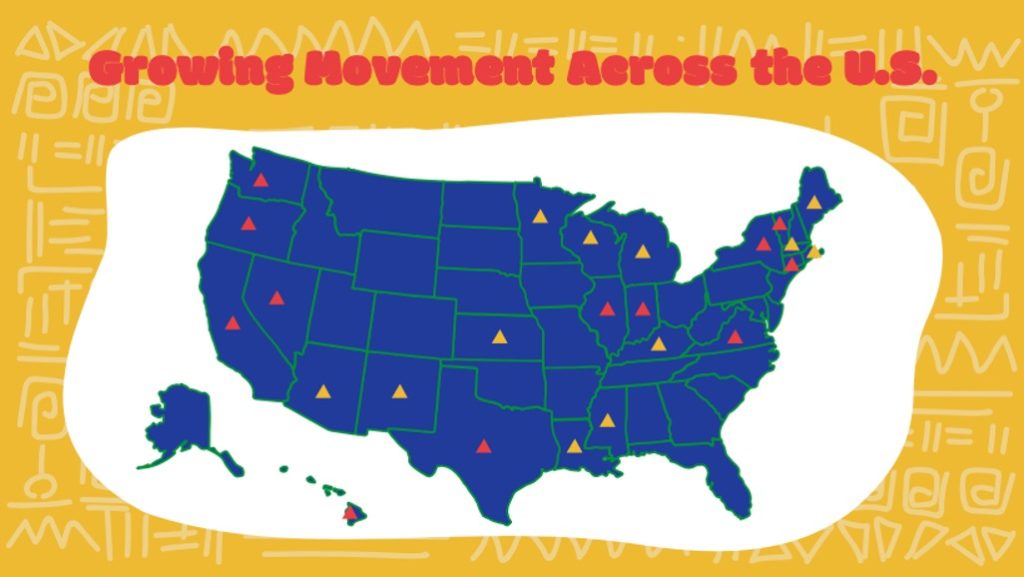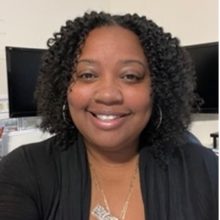

|
|
As the country reacted to the murder of George Floyd and several unarmed Black men and women at the hands of those sworn to protect and serve, a surge of conversations around “who matters” resurfaced, not only in our larger social conversation, but also in discussions of schools and curriculum.
Educators across the country are tasked with helping young people to reach their full potential. An important part of reaching that potential is tied to their sense of identity, their development of a positive racial identity, and a sense of belonging to their cultural and racial groups. North Carolina students can develop positive racial identities through curriculum offered by ethnic studies (ES) courses, which are currently not present within the Department of Public Instruction’s standards and graduation requirements.
Let’s start by demystifying what ethnic studies actually is. For more than a century, the question of educating non-white students has been critiqued by many scholars. In the 1960s, education scholars developed a field of study known as ethnic studies as a way of offering a more equitable education to students who have historically been marginalized and excluded from the content taught in schools.
Ethnic studies primarily centers its coursework on the four most historically marginalized groups in the United States: African Americans, Latinxs, Native Americans, and Asian American/Pacific Islanders. Building a positive cultural identity and a sense of pride are the primary goals of ES curriculum.
By participating in these classes, students explore race relations and ethnic identity in the U.S., examine the history of racial subjugation and white supremacy, gain tools to empower themselves as change agents for their communities, and are exposed to a curriculum which amplifies the voices of communities of color. These classes place value on the wealth of cultural knowledge — an awareness of the behaviors and values that are learned, shared, and practiced by a particular group of people — that students bring with them into a classroom.
What is the need?
The statewide and nationwide student populations have been diversifying for several years. According to the Racial/Ethnic Enrollment in Public Schools Report, by fall of 2017 more than 50% of students enrolled in public schools in America were students of color, largely Black and Latinx populations. Specific to North Carolina, student demographics show that 50.3% of students enrolled in public schools as of 2016 were students of color, a result of not just a growing Latinx population, but also an influx in the Asian, Indian, and refugee populations in the state.
Our state is becoming more diverse while efforts are also being made to try and further silence marginalized voices and impact the way in which historical facts are taught in North Carolina, especially those dealing with issues of race. In many school systems, curriculum has been built upon information deemed important to the dominant, white middle-class culture. If only certain cultures are included, what must school be like for those students whose cultural backgrounds do not align?
Ethnic studies courses create a space for the knowledge of marginalized students and their cultural groups to be centered. No longer should students sitting in North Carolina classrooms be made to feel invisible or unimportant. If given access to ethnic studies courses, all students will be exposed to multiple viewpoints and perspectives. This will allow all North Carolina students to begin to see themselves as producers of knowledge instead of mere consumers of it.
California as a model
States across the country are beginning to recognize the need to be intentional in supporting students as they develop their cultural identity.


A model ethnic studies curriculum developed by the California Department of Education utilizes the topics of identity, colonization, Latinx presence in the US, media, hegemony & oppression, social movements, and systems of power to guide the curriculum. Students in these courses will be able to write their own oral histories, learn about the push and pull factors of immigration, examine the societal contributions of Latinxs, examine news and media narratives, and learn about successful social movements organized by people of color. With each activity, students will be empowered in who they are, learn about others, and feel more closely connected to their own cultural group.
The benefits for students enrolled in ethnic studies courses not only include positive racial identity development and a more complete understanding of national history and culture, but also overall school experience improvements: increased literacy skills, higher academic achievement, increased attendance, lower drop-out rates, and increased interest in teaching careers and higher education.
Our schools cannot continue to be places which marginalize students through the exclusion of their representation within curriculum, policy, and teaching practices. Classroom content and practices should be tailored to the students who are being educated.
Upon graduating from a North Carolina high school, students need to be equipped with both a stronger connection to their own heritage, as well as a strong understanding of cultures and communities represented throughout the state if we are truly preparing them to be 21st century learners in a globalized society. As schools move toward making educational experiences for all students meaningful, student-centered, and culturally responsive, required enrollment in an ethnic studies course would meet that need.





